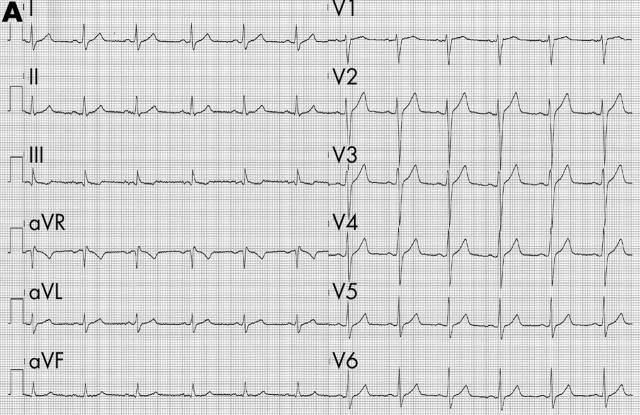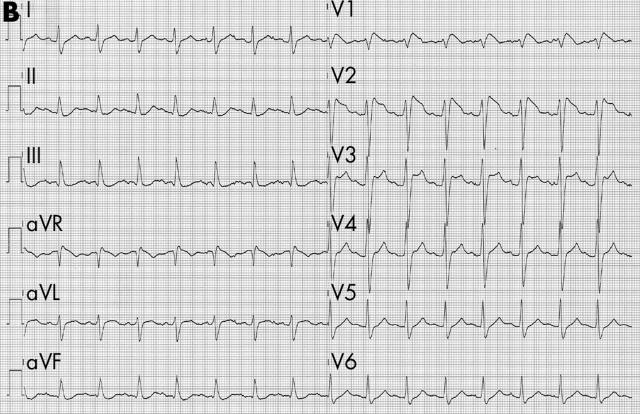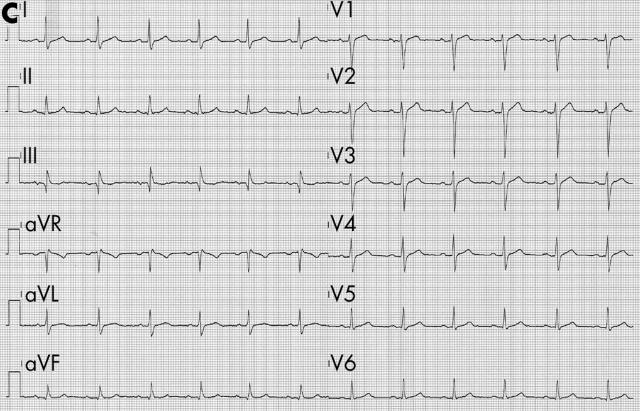A 42 year old man with a history of depression, asthma, and obstructive sleep apnoea presented with ventricular fibrillation at home. On admission to hospital, his medications were desipramine 400 mg at night time, omeprazole 20 mg daily, and bromocriptine 2.5 mg at night time. One month before admission, his desipramine dose had been increased from 300 mg. He denied suicidal ideation or drug overdose, street drug use, or other non-prescription drug use. Two years before his presentation an ECG was normal (panel A). His medications at that time were: fluoxetine 100 mg daily, omeprazole 20 mg daily, and moclobemide 300 mg three times daily. His presenting ECG (panel B) was significantly different from his previous ECG. His admission electrolytes and thyroid stimulating hormone (TSH) were normal. In hospital, the patient had two other episodes of ventricular fibrillation. His coronary angiogram was normal. Gated blood pool SPECT confirmed that his right and left ventricular ejection fractions were normal. There was no evidence of arrhythmogenic right ventricular dysplasia on magnetic resonance imaging. Genetic testing revealed an SCN5A polymorphism (His558Arg). Desipramine was discontinued and his ECG returned to normal (panel C). He was treated with a β blocker and an implantable cardioverter-defibrillator. He has had no recurrent ventricular arrhythmia since his desipramine was discontinued (three months follow up). The Brugada ECG revealed by tricyclic antidepressants have been previously described. However this is the first report of the Brugada syndrome (that is, Brugada ECG and life threatening ventricular arrhythmias) being provoked by a tricyclic antidepressant. The relevance of the SCN5A polymorphism in the presence of desipramine induced Brugada syndrome is unknown, although subclinical genetic polymorphisms have been identified in other drug associated ventricular arrhythmias. To our knowledge, this is the first report of the Brugada syndrome being induced by a drug other than an antiarrhythmic.
. 2005 May;91(5):651. doi: 10.1136/hrt.2004.049593
Brugada syndrome precipitated by a tricyclic antidepressant
1Email: bchow@ottawaheart.ca
Keywords: Images in cardiology
Copyright © Copyright 2005 by Heart
PMCID: PMC1768892 PMID: 15831654





